Understanding Intellectual Disability - Module 4 Answer Key
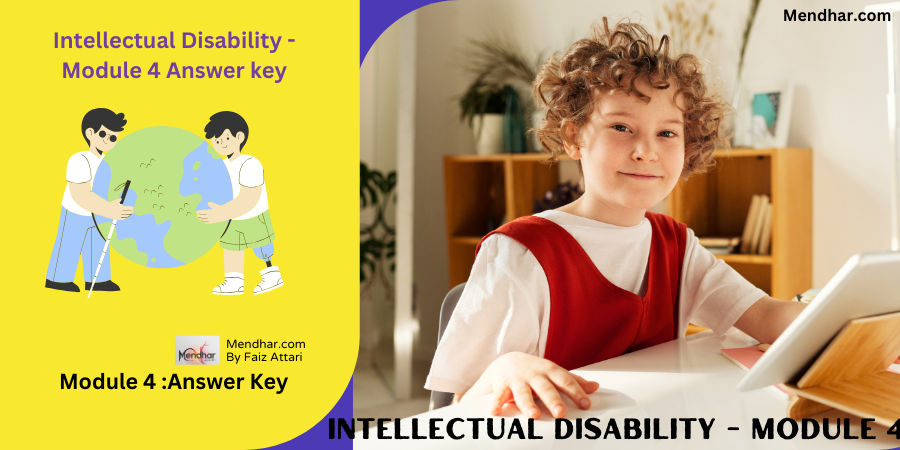
Introduction:Intellectual Disability – Module 4 Answer Key
Welcome back to our ongoing series on Intellectual Disability. In this installment, we continue our journey of exploration and understanding by delving into Module 4. Here, we embark on a quest to uncover the answer key, a pivotal tool that promises to enrich our comprehension of this crucial topic.
Intellectual Disability, often misunderstood and stigmatized, casts a wide shadow, affecting millions of individuals worldwide. Yet, amidst the misconceptions and biases, there exists a profound need for education and awareness. It is through these avenues that we endeavor to dismantle the barriers of ignorance and discrimination.
Our mission is clear: to shed light on the complexities of intellectual disability, offering a beacon of understanding and compassion. In doing so, we aim to provide invaluable insights and resources that empower individuals, families, and communities.
Let us embark on this journey together, as we unlock the treasure trove of knowledge encapsulated within Module 4’s answer key. Through our collective efforts, we can cultivate a deeper comprehension of intellectual disability, fostering a more inclusive and empathetic society.
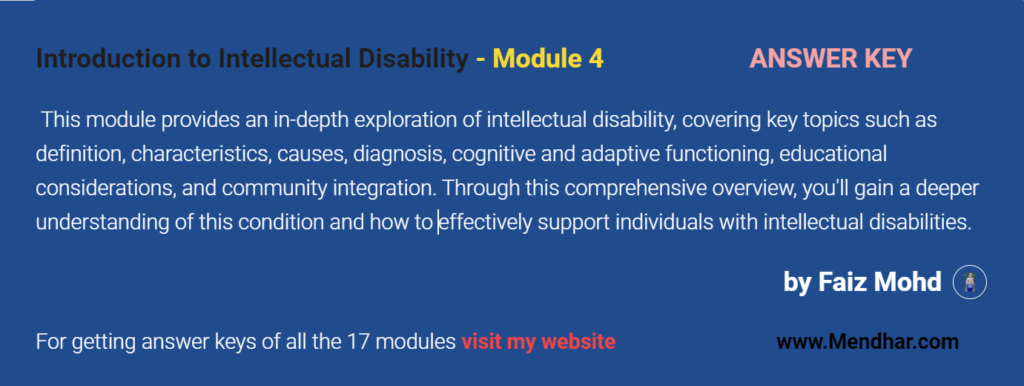
Intellectual Disability – Module 4 Answer Key:
1. Social skills include:
– Interpersonal skills and social responsibility
– Healthcare
– Travel
– None of the above
– Answer: Interpersonal skills and social responsibility🖊️
2. Intellectual disability is characterized by significant limitations, both in intellectual and adaptive functioning.
– True
– False
– Answer: True🖊️
3. Conceptual skills include:
– Language and literacy
– Money and time concepts
– Number concepts
– All of the above
– Answer: All of the above🖊️
4. Adaptive behaviour is the collection of conceptual, social and practical skills that are learnt and performed by people in their
– True
– False
– Answer: True🖊️
5. Poor attention and concentrate in everyday lives.
– on is found in children with ID.
– Options:
– True
– False
– Answer: True🖊️
6. A child with ID can make decisions independently.
– Options:
– True
– False
– Answer: False🖊️
7. Due to poor adaptive skills, individuals having intellectual disabilities have limited self-care skills.
– True
– False
– Answer: True🖊️
8. Children with ID always display aggressive reactions when their demands are not met immediately.
– True
– False
– Answer: False🖊️
9. Individuals with a mild level of ID are not educable and require high support from others.
– True
– False
– Answer: False🖊️
10. Profound ID students require pervasive support throughout their lives.
– Options:
– True
– False
– Answer: True🖊️
11. Moderate ID students are trainable and, thus, require limited support.
– True
– False
– Answer: False
12. Severe ID students require minimal support.
– True
– False
– Answer: False🖊️
13. Autism spectrum disorder, Down’s syndrome, cerebral palsy, epilepsy, ADHD cannot be comorbid disorders with intellectual disability.
– True
– False
– Answer: False🖊️
14. Intellectual disability is treatable.
– True
– False
– Answer: True🖊️
15. Students with Intellectual Disability have the ability to read.
– True
– False
– Answer: It varies; it can be true for some students with ID but false for others, depending on their individual abilities and needs.
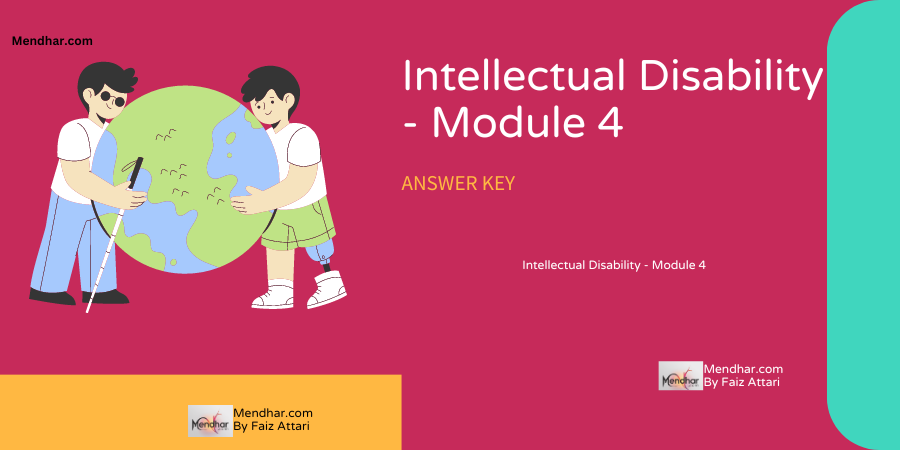
Government Initiatives in India:
In recent years, the Government of India has taken significant strides in addressing intellectual disability and promoting inclusion within society. Recognizing the importance of equal opportunities and accessibility, several initiatives have been implemented:
Rights-based Legislation: The Rights of Persons with Disabilities Act, 2016, serves as a landmark legislation safeguarding the rights and entitlements of individuals with disabilities, including intellectual disabilities. This act mandates equal access to education, employment, and healthcare, empowering individuals to lead fulfilling lives.
Inclusive Education Programs: The government has initiated various inclusive education programs aimed at integrating students with intellectual disabilities into mainstream schools. Through policy reforms and teacher training initiatives, efforts are underway to create supportive learning environments that cater to diverse learning needs.
Skill Development and Employment Opportunities: To enhance economic empowerment and social inclusion, the government has launched skill development programs targeting individuals with intellectual disabilities. By imparting vocational training and facilitating employment opportunities, these initiatives foster independence and self-sufficiency.

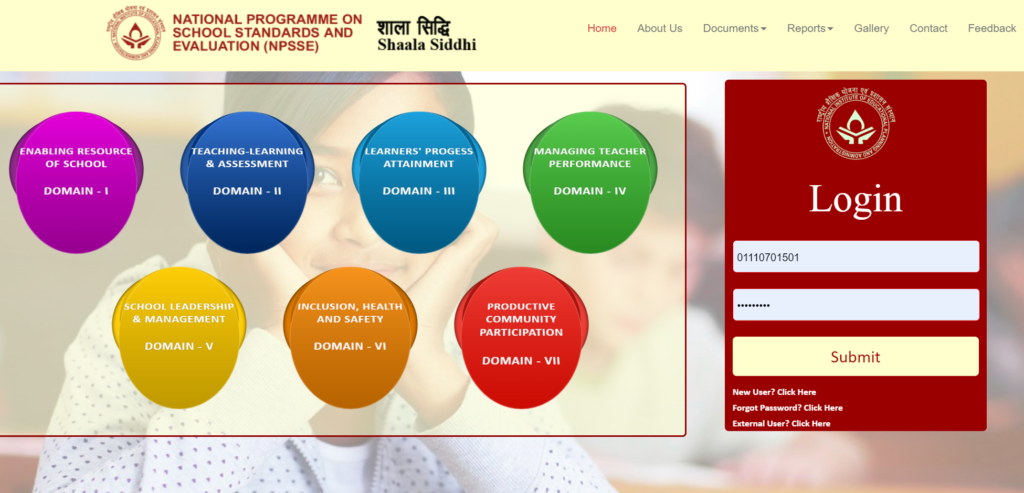
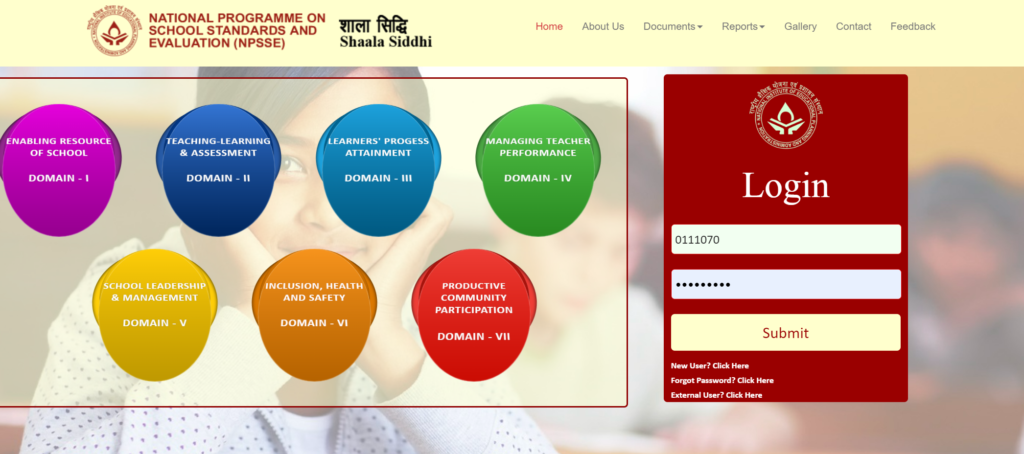
Pingback: Specific Learning Disabilities: Module 5 -